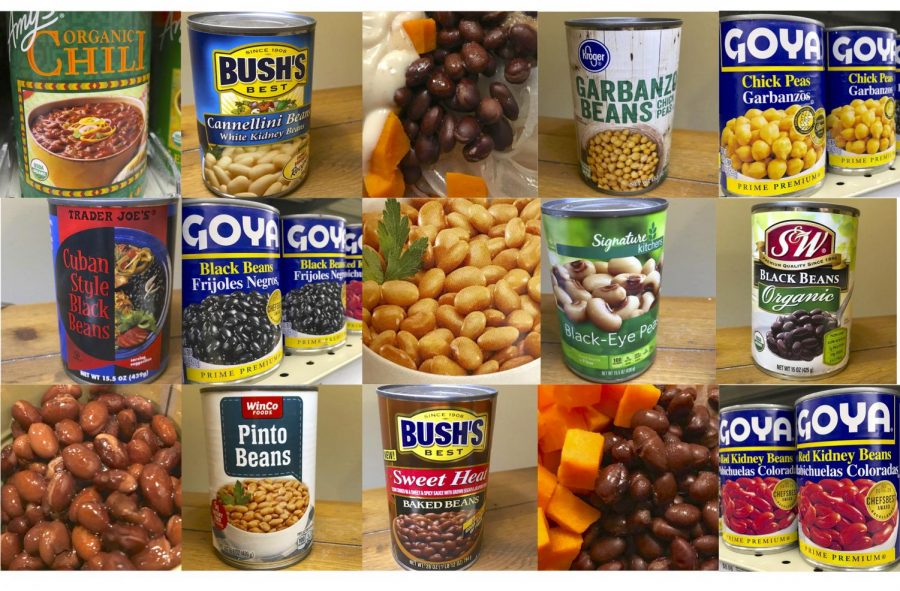photo courtesy of Parker Briggs
Beans are an excellent source of nutrients such as fiber, iron, folate, and complex carbs.
Beans: The Miracle Fruit
February 21, 2021
Beans, beans, the musical fruit; The more you eat, the… lower your risk for cardiac disease.
That isn’t quite how the saying goes, but it’s certainly medically accurate. For a multitude of health problems— including those most common in America— beans are an often overlooked, yet easy and effective remedy. Whether pinto, black, kidney or navy, beans, when added to any diet, can provide a gold mine of extraordinary health benefits.
Registered dietitian Sara Young of Sierra Nutrition, located in Tacoma’s Stadium District, prescribes the consumption of beans for both preventative health measures and diagnostic treatment. Notwithstanding the food’s near-panacea status, she acknowledges that common knowledge is correct: Beans do cause gas. This is the effect of the legumes’ high content of oligosaccharides, a type of carbohydrate.
“The oligosaccharides in beans resist digestion all the way until they meet the bacteria in the large intestine,” she said. Because the human digestive tract lacks the enzymes needed to break down the oligosaccharides, the bacteria in the large intestine rapidly ferment the carbohydrate and produce methane gas.
Because of this, registered dietitian Joan Hogan, of Food 4 Life Nutrition, encourages people to start slowly when introducing beans into their diet: “If you eat too large of a quantity too quickly, you may experience a lot of gas.”
“Fortunately,” added Young, “many of these negative effects can be mitigated by soaking and cooking beans thoroughly.” She suggests cooking beans with kombu— a sea vegetable, available at most groceries, that contains many of the enzymes humans are missing. Young recommends holding “Frijole Fridays” or “Meatless Mondays” as a way to incorporate plant-based protein into your weekly menu.
Surplus wind is only a minor cost for beans’ outstanding health benefits. “Beans have a lot of nutrition for such a little seed!” noted Young.
Fiber
Beans have an especially high fiber content, ranging from 11g per cup for kidney beans to 19g per cup for white navy beans. Because you should aim to consume 30g of fiber per day, consuming beans is an easy way to support digestive health.
According to Hogan, “Fiber also is of benefit in promoting healthy probiotics that can help immune health, weight loss, cardiac disease and certain cancers.”
Also present in beans is resistant starch, a compound that receives much less attention. “It’s called this because it resists digestion,” similar to fiber, said Young, “leaving you feeling fuller longer when you eat beans.”
Protein
A cup of cooked beans contains roughly 6g of plant-based protein. Because they lack an amino acid necessary for the body to create a complete protein, beans are best served with rice or any other grain. This combination provides the remaining amino acids needed to make the protein complete.
Hogan shared that “Unlike meat and a number of other animal-based proteins they are low in fat, high in fiber, and high in phytochemicals.”
Phytochemicals
These phytochemicals, she says, “are nutrients unique to plant foods that are of benefit for overall protection against several diseases.” These maladies include certain cancers, kidney disease, neurological problems, and immune deficiency.
Iron
According to Young, “Beans have a good amount of iron for a plant-based protein, at 4mg per cup. However, the type of iron found in plants is less absorbable than that of fleshy proteins, so you need to make sure and eat plants high in iron with a vitamin C source, like bell peppers, to help it be absorbed.”
Healthy iron levels can be important in avoiding heart disease. Furthermore, Hogan says she “work[s] with people with cardiac disease, using beans to help with this getting better management of their cholesterol.”
Complex Carbohydrates
Beans contain high levels of complex carbs, which are more nutritious than simple carbohydrates found in bread and processed foods. Whereas simple carbs quickly turn into sugar in the body, complex carbs such as those in beans take longer to break down, providing a stable source of energy in the form of glucose to the bloodstream.
Folate
“Folate,” Young said, “is one of those important nutrients no one talks about until you’re expecting a baby. But it’s important in helping red blood cells grow, and assists in cell replication. Beans have a ton of folate – 1 cup of beans is about a third of what we need for a day.”
Potassium
A cup of beans contains almost three times as much potassium as a banana. “I recommend beans as a good source of potassium for individuals with hypertension. Beans are an easy way to increase potassium intake.”
This piece was originally published in Inkwell’s Health Issue.
